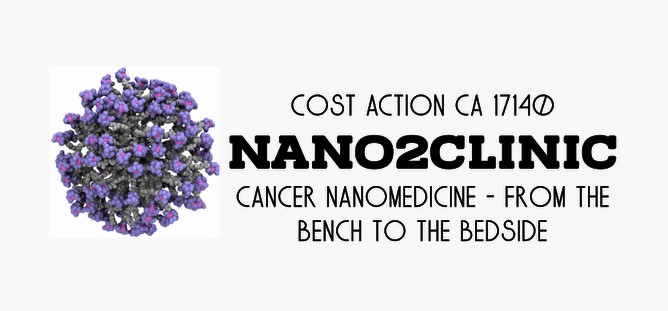NEWS
Nanomedizin gegen Krebs: NANO2CLINIC Workshop am Forschungscampus STIMULATE
Unter dem Titel „Neuerungen in der Nanomedizin gegen Krebs in die Kliniken: Hypes, Hoffnungen und Hürden“ veranstaltete die Universitätsklinik für Allgemein-, Viszeral-, Gefäß- und Transplantationschirurgie Magdeburg und die Abteilung für molekulare und experimentelle Chirurgie (MES) mit der Unterstützung der Europäischen Kooperation für Wissenschaft und Technologie (COST) am Forschungscampus STIMULATE einen 2-tägigen NANO2CLINIC Workshop. Interdisziplinär tauschten sich Mediziner:innen und Wissenschaftler:innen aus verschiedenen Fachbereichen zu klinischen Szenarien und deren Modellierung sowie zu neuen Technologien in der Nanomedizin aus.
Die Palette der klinischen Szenarien reichte dabei von interventionellen Nanosystemen über gezielte Immuntherapie, interventionelle Neurologie, Lipid Nanovesikel für die Therapie von Leberkrebs und minimal-invasive Bestrahlungstherapie. Im Agendapunkt „Modellierung klinischer Szenarien“ wurde diskutiert, wie präklinische Modelle der Nanomedizin Einzug in den klinischen Alltag erhalten können; zunächst allgemein und dann an Beispielen, wie einem Transfer über Eigen-Organoide bei Magen-Darm-Krebs und designten Proteinen gegen Entzündungen und Tumorwachstum. Im Mittelpunkt standen auch der Erfahrungsaustausch in der Standardisierung von Prozessen und die Relevanz präklinischer Modelle für radiopharmakologische Innovationen. Im tagesfüllenden dritten Teil des Workshops wurden die neusten Technologien in der Nanomedizin vorgestellt und diskutiert: Nanomedizin für Magen-Darm-Krebs, Einzelketten-Nanopartikel für 2-Photonen-Photoakustik-Bildgebung und Medikamententransfer, extrazelluläre Vesikel zur antibakteriellen Therapie, Disorazole, KI-assistiertes Monitoring von Nanomedizin, theranostische Nanotherapie, Nanopartikel in Tumormodellen sowie die Strategie, wie Nanomedizin besseren Einzug in die Krebstherapie erhalten könnte.
Thematisch passende Einblicke boten sich am Forschungscampus während einer Führung in den MRT- und Angiographie-Laboren, im STIMULATE Showmobil - dem rollenden Forschungslabor des Forschungscampus - sowie beim Partner Neoscan Solutions, der im Nachbargebäude MRT-Geräte für Neugeborene und Kleinkinder herstellt.
Nanomedicine against cancer: NANO2CLINIC workshop at the Research Campus STIMULATE
Under the title "Innovations in nanomedicine against cancer in the clinics: Hypes, hopes and hurdles", the University Hospital for General, Visceral, Vascular and Transplant Surgery Magdeburg and the Department of Molecular and Experimental Surgery (MES) organised a 2-day NANO2CLINIC workshop at the Research Campus STIMULATE with the support of the European Cooperation for Science and Technology (COST). Doctors and scientists from various disciplines exchanged ideas on clinical scenarios and their modelling as well as on new technologies in nanomedicine.
The clinical scenarios ranged from interventional nanosystems to targeted immunotherapy, interventional neurology, lipid nanovesicles for the treatment of liver cancer and minimally invasive radiotherapy. The agenda item ‘Modelling of clinical scenarios’ discussed how preclinical models of nanomedicine can find their way into everyday clinical practice; first in general terms and then using examples such as transfer via self-organoids in gastrointestinal cancer and designed proteins against inflammation and tumour growth. The focus was also on the exchange of experience in the standardisation of processes and the relevance of preclinical models for radiopharmacological innovations. In the day-long third part of the workshop, the latest technologies in nanomedicine were presented and discussed: Nanomedicine for gastrointestinal cancer, single-chain nanoparticles for 2-photon photoacoustic imaging and drug transfer, extracellular vesicles for antibacterial therapy, disorazoles, AI-assisted monitoring of nanomedicine, theranostic nanotherapy, nanoparticles in tumour models and the strategy of how nanomedicine could better enter cancer therapy.
Thematically appropriate insights were offered at the Research Campus during a guided tour of the MRI and angiography laboratories, in the STIMULATE Showmobile - the Research Campus' rolling research laboratory - and at the partner Neoscan Solutions, which manufactures MRI devices for newborns and infants in the neighbouring building.
